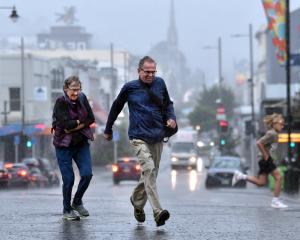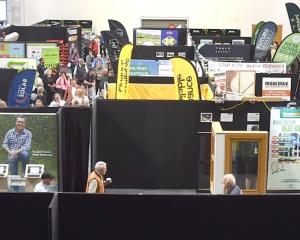The changes to the service in the city, and in the Wakatipu area, were approved yesterday by the Otago Regional Council, when it voted to endorse the Otago Regional Public Transport Plan.
It did not go through unchanged from a draft plan released in June, with opposition by residents of suburbs including Brockville and Corstorphine forcing changes.
That plan will include faster and more direct routes away from smaller residential streets, as part of a service that will cost $100 million in the next decade.
It will feature a central-city hub where all services will arrive and depart, and a trial ''Ridge Rider'' orbital route connecting South Dunedin, Mornington, Roslyn, Maori Hill, the botanic garden and University of Otago area.
Cr Michael Deaker said the most obvious and extensive change would be making routes more direct.
The current system was ''difficult to understand and difficult to read in terms of timetables''.
The new plan would include a new ticketing system to provide free transfers within zones, online card top-up and other modern features.
A ''real-time'' information system that tracked buses would be trialled in the Wakatipu and, if successful, would be introduced in Dunedin.
It would have a minimum of street displays at the central city hub and major stops, and be accessible through smartphones and the internet.
The plan has been developed this year by the ORC, along with the Dunedin City Council, the New Zealand Transport Agency, the Queenstown Lakes District Council and bus companies.
It was subject to a submission process that attracted about 330 responses, and hearings in September.
Cr Deaker, who was on the hearings subcommittee, said the new system would be implemented over the next 15 months as contracts with bus companies were renewed.
The central city bus hub would clear George and Princes Sts of parked buses, particularly on either side of the Octagon where ''unofficial bus hubs'' were.
The site of the hub was still being considered by the ORC and the Dunedin City Council, along with bus companies and businesses.
Cr Deaker said the site would be on ''a lesser street'', although he said he could not yet reveal where that would be.
It would probably require buildings, although more likely shelters than larger structures.
He hoped some services, like coffee outlets, would be included.
''We're hoping to have the downtown bus hub up and running preferably within the next 12 to 15 months.''
The hearings subcommittee considered requests for cheaper prices on buses, but a report to yesterday's finance and corporate committee said the Public Transport Plan process was not the vehicle for that debate, which should be considered as part of the council's annual plan process.
The finished plan also overturned changes that upset Brockville and Corstorphine patrons.
Under the draft plan, the Brockville route would no longer have travelled via Stuart St.
Corstorphine bus users called for a return to a more circular route between the suburb and St Clair Park.
Cr Deaker said the committee ''listened very carefully'' to those submissions.
The result was the plan was amended, as those making submissions had asked.
Cr Deaker said the council had not realised the importance of the relationship between Brockville and South Dunedin.
A plan to run the Concord bus via Mornington was also canned, and the service would continue to use Kaikorai Valley Rd and Stuart St.
Brockville Community Support Trust secretary Marie Laufiso said she was ''very pleased'' with the council's decision on the Brockville service.
The response
Yes to trial of ''Ridge Rider'' from South Dunedin via Highgate to university.
Yes to hospital service from bus hub to hospital via Cumberland St.
No to airport service: ''not a priority at this time''.
No to Orokonui Ecosanctuary route; would be ''uneconomic, spasmodic and difficult to create''.














